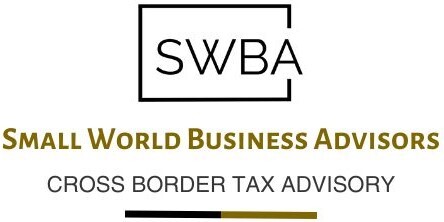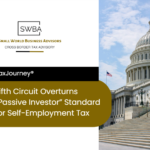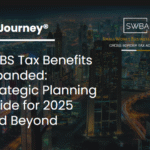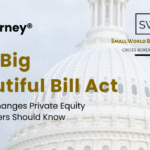Each year, the IRS publishes inflation adjustments to a number of tax provisions to reflect the rising costs. For tax year 2026, the inflation adjustments are especially noteworthy because of certain amendments in the One Big Beautiful Bill Act (“OBBBA”). The amendments affect standard deductions, income tax marginal tax brackets, estate and gift tax exclusion amounts, some of the employer benefits credits, and more. It is vital for business leaders, advisors, and taxpayers to be aware of benefit of these provisions and changes.
Key Adjustments for Tax Year 2026
1. Standard Deduction Increases
- Married-Joint: $32,200 (up from $31,500)
- Single / Married-Separately: $16,100
- Head of Household: $24,150
- The increases provide some minor relief and accounts for inflationary pressure.
2. Marginal Tax Bracket Updates
- Top rate of 37% continues for incomes over $640,600 (single) and $768,700 (married-joint).
- Other brackets (35%, 32%, 24%, 22%, 12%, and 10% rates) are raised, which reduces “bracket creep.”
- The minimum tax rate is 10% for single filers with an income of $12,400 or less ($24,800 for married joint filers).
3. Alternative Minimum Tax (AMT) & Exemptions
- AMT exemption for unmarried individuals is $90,100 (phasing out at 500,000).
- For Married Filing Jointly, the phase out threshold is $1,000,000.
4. Estate & Gift Tax Exclusions
- The basic estate tax exclusion amount increased to $15,000,000 (up from $13,990,000).
- Annual gift exclusion remains $19,000 and the special exclusion for non-citizen spouses increases to $194,000.
5. Adoption Credits
- The maximum credit permitted for adoptions for the tax year 2026 is the adoption-related qualified expenses up to $17,670 which is an increase from $17,280 for 2025.
- For tax year 2026, the maximum refundable credit is $5,120.
6. Employer-Provided Childcare Tax Credit Boost
- OBBB significantly enhanced this:
- The cap for the childcare credit increased from $150,000 to $500,000 ($600,000 for eligible small business).
7. Other Adjusted Items
- Earned Income Tax Credit (EITC) maximum for qualifying taxpayers is now $8,231.
- Qualified Transportation Fringe Benefit/parking limit is now $340/month.
- Health Flexible Spending Arrangements (FSAs): salary reduction limit is now $3,400 and carryover limit is $680.
- Medical Savings Accounts: deductible/out-of-pocket limits adjustments.
- Foreign Earned Income Exclusion is now $132,900 (up from $130,000).
Implications & Takeaways for Businesses & Founders
- These inflation adjustments help mitigate tax drag created from rising nominal income, but do not affect the core tax structure.
- High net worth or pass-through entities will be more relieved with an increased exemption from estate and gift tax limits for planning and legacy purposes.
- The increased employer childcare credit could specifically help businesses that already offer generous benefits.
- Higher exemption thresholds (AMT, standard deduction) eliminated moving taxpayers into higher marginal burdens.
The information contained in this post is merely for informative purposes and does not constitute tax advice. For more information, feel free to reach us at [email protected]
Copyright 2025 Small World Business Advisors LLC www.swbadvisors.com













